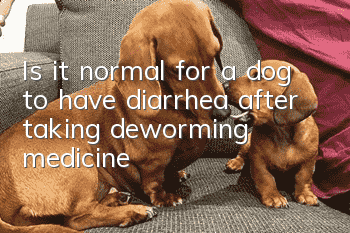Is it easy for German Shepherd dogs to get sick? Do these checks and take good care of your health.

German Shepherds are prone to enteritis
German Shepherds eat unclean, cold or rotten food, as well as irritating food Inflammation of the intestinal mucosa and its deep tissues caused by drugs or foreign bodies is called enteritis, and gastroenteritis is usually a mixed inflammation.
Symptoms:The main symptoms of enteritis are diarrhea, accompanied by vomiting, bleeding in the intestinal mucosa, black stool or blood clots. Bacterial enteritis causes increased body temperature, loss of appetite, and animals show dehydration, poisoning, and abdominal pain.
Treatment:Oral rehydration salt, anti-inflammatory and antibacterial (such as gentamicin, kanamycin), nutritional supplement, stomach invigorating and antiemetic.
German Shepherds are prone to otitis media and otitis interna
Otitis media and otitis interna in German Shepherds refer to inflammatory lesions of the middle and inner ears of dogs. Otitis media and otitis interna in dogs often occur at the same time or one after another.
Cause:Infection by pathogenic bacteria through blood; infection through Eustachian tube; spread of otitis externa infection or direct infection through perforated tympanic membrane. Diagnosis: Dog shaking his head, circling (turning to the affected side), ataxia, earache, deafness and otorrhea. In severe cases, inflammation attacks the facial nerve and parasympathetic nerve, causing facial paralysis. Perforation of the tympanic membrane can be seen during otoscopy, and tympanic membrane protrusion or discoloration can be seen in patients with Eustachian tube infection or blood-borne infection.
Treatment: Systemic antibiotics and middle ear irrigation. Middle ear irrigation should be performed under general anesthesia, and the irrigation fluid should be 37-38°C normal saline. The irrigation should be repeated until the aspirated irrigation fluid is clean.
German shepherds are prone to periodontitis
Cause: Dental plaque and calculus have been attached around the German black-backed canines for a long time, causing mechanical irritation and the release of toxic bacterial products. Symptoms: bad breath, salivation, red, swollen, soft, and atrophic gums, loose roots of German blackback teeth, and purulent secretions from the gums during the inflammation period.
Treatment: Remove plaque, calculus and food residue from the German Shepherd's teeth under anesthesia, and polish all tooth surfaces as much as possible to prevent plaque and calculus from reaccumulating and adhering. Remove loose teeth. For stubborn periodontitis that does not heal for a long time, the relevant teeth should be extracted. If the gums are enlarged, electrocautery can be used to remove excess tissue. Postoperatively, iodine glycerin is applied, and antibiotics, multivitamins, etc. are applied throughout the body. If periodontitis in German Shepherd Dogs is not treated in time, the inflammation will further develop and cause the gums and alveolar bone tissue to recede, causing damage to the gum tissue and irregular tooth alignment.
Daily care inspection items for German Shepherd
Beauty knowledgeEye cleaning and health care
Check the dog’s eyes carefully every day to see if there is any inflammation and whether the pupils are cloudy. If there is a yellow or green band around the pupils, it just means there is something wrong. A sign of infection. If your eyes often water and blink, take them to the veterinarian for examination. When cleaning the eyes, mix a bowl of salt water with a water temperature that is roughly the same as human body temperature. Dip it in with an absorbent cotton ball and wipe away the secretions and dust around the eyes. Be careful not to leave lint on your dog's eyes when using absorbent cotton.
Teeth cleaning
Check the mouth and between teeth every day for foreign objects. Clean your teeth once a week, using a soft toothbrush to gently massage the gums up and down. If your teeth are not cleaned regularly, dental diseases such as tartar, bad breath, and gum inflammation will occur.
Ear inspection
When cleaning the ears, carefully check whether there is inflammation, odor, excessive accumulation of earwax, dandruff, foreign matter, etc. Use a cotton swab deep into the ear canal to carefully remove the earwax. If the skin inside the ears is pink, you don’t have to worry about earwax and earwax.
Cleaning of limbs
After returning from a walk in the countryside, wash the limbs and claws with warm water equivalent to human body temperature. Avoid using hot water for cleaning except in severe cold weather. Use your fingertips to gently peel off the mud between your limbs and toes. Wash and dry with cloth.
Trim the claws
Sheepdog’s claws are very thick, so special nail clippers are required. The dog will feel painful when trimming the dog's toenails, so it is best to trim the dog's toenails after bathing when they are soft. Be careful not to scissor your dog's fleshy claws when trimming. The inner flesh of a dog's paw is pink and contains rich blood vessels and nerves, so be careful where to cut it.
- How long does it take for puppies to switch to dog food?
- The puppy is frothing and won’t eat and has no energy.
- What’s wrong with dogs’ dry cough?
- Want to know what gestures are used to train a dog to sit down? Dog training commands and gestures!
- What should I do if my dog disobeys discipline? Dog behavior training!
- What should I prepare to transport my dog by air?
- Six ways to stop your dog from barking
- Can I travel with my dog in the car?
- Schnauzer skin disease treatment and prevention methods
- How do you know if your dog is a good match?



